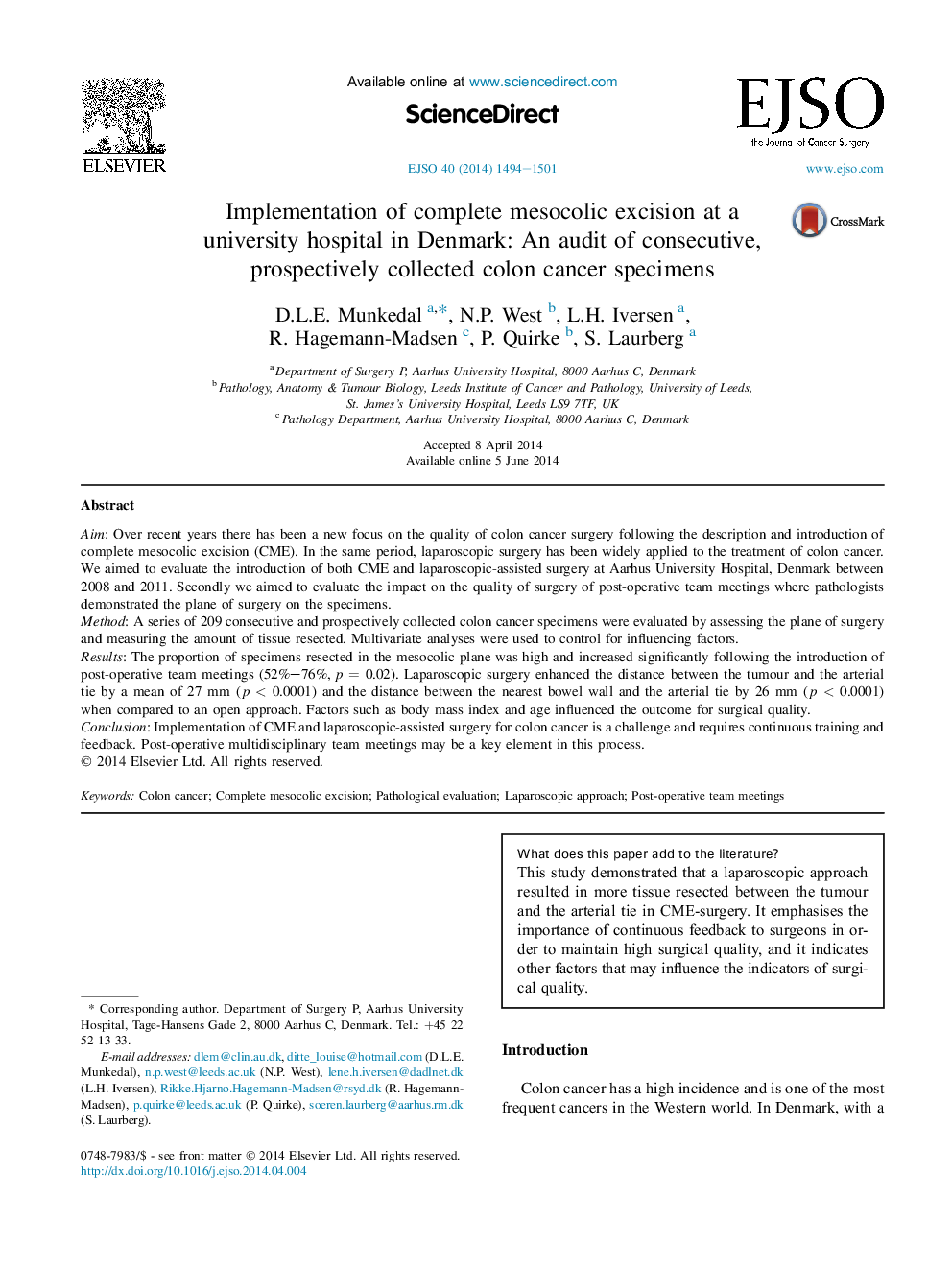| Article ID | Journal | Published Year | Pages | File Type |
|---|---|---|---|---|
| 3984993 | European Journal of Surgical Oncology (EJSO) | 2014 | 8 Pages |
AimOver recent years there has been a new focus on the quality of colon cancer surgery following the description and introduction of complete mesocolic excision (CME). In the same period, laparoscopic surgery has been widely applied to the treatment of colon cancer. We aimed to evaluate the introduction of both CME and laparoscopic-assisted surgery at Aarhus University Hospital, Denmark between 2008 and 2011. Secondly we aimed to evaluate the impact on the quality of surgery of post-operative team meetings where pathologists demonstrated the plane of surgery on the specimens.MethodA series of 209 consecutive and prospectively collected colon cancer specimens were evaluated by assessing the plane of surgery and measuring the amount of tissue resected. Multivariate analyses were used to control for influencing factors.ResultsThe proportion of specimens resected in the mesocolic plane was high and increased significantly following the introduction of post-operative team meetings (52%–76%, p = 0.02). Laparoscopic surgery enhanced the distance between the tumour and the arterial tie by a mean of 27 mm (p < 0.0001) and the distance between the nearest bowel wall and the arterial tie by 26 mm (p < 0.0001) when compared to an open approach. Factors such as body mass index and age influenced the outcome for surgical quality.ConclusionImplementation of CME and laparoscopic-assisted surgery for colon cancer is a challenge and requires continuous training and feedback. Post-operative multidisciplinary team meetings may be a key element in this process.
